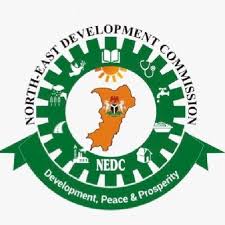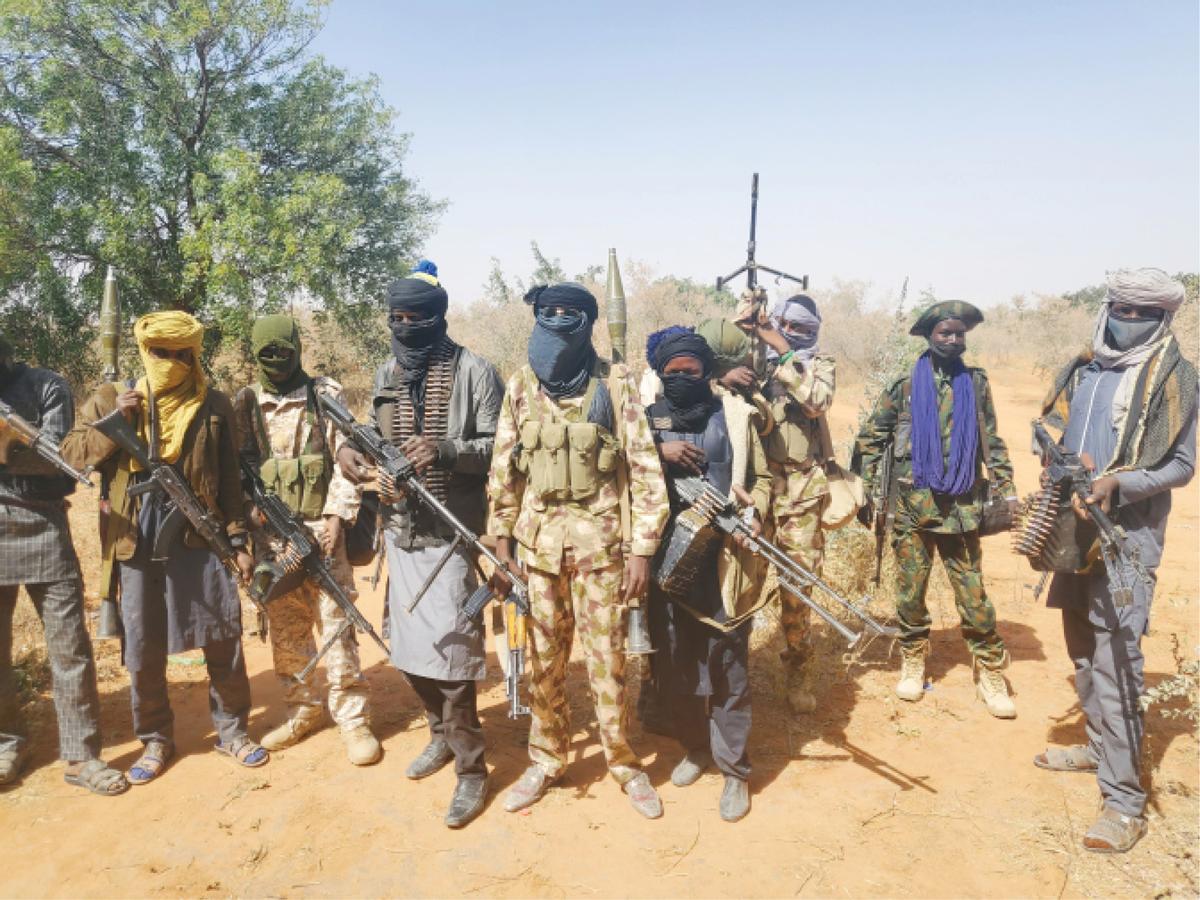NEDC’s Transformative Impact in North East: Over 700 Projects Revitalizing the North East Region
By: Zagazola Makama
Halima Bukar is a 12-year old pupil of the Government Day Junior Secondary School, Yusufari in Yobe. She is happy for having the opportunity to be attending classes alongside her peers.
Halima’s success is a testament to the conducive learning environment created through the interventions of government agencies and donors. These efforts aim to address the devastating impact of the decade-long Boko Haram insurgency in the North-East region of Nigeria.
The North East Development Commission (NEDC) has been at the forefront of these initiatives, working to rebuild and restore the region’s educational infrastructure, healthcare systems, and economic opportunities. Halima’s story is a beacon of hope for a brighter future in Yobe, thanks to the collective efforts of the government, donors, and the NEDC.”
“Born during the height of the insurgency, Halima’s early life was marked by displacement and uncertainty. However, her journey took a positive turn when she began her education at a makeshift learning space set up by humanitarian actors in an Internally Displaced Persons (IDPs) camp. This intervention proved pivotal, as it prepared her to successfully complete her primary education and transition to post-basic education.
Halima’s story is a testament to the impact of the North East Development Commission’s (NEDC) infrastructure development projects, led by Dr. Mohammed Alkali. The commission’s efforts have enabled thousands of children and adolescents in the region to return to school, access quality education, and regain their footing.
Halima, a direct beneficiary of these interventions, expressed her gratitude, saying, “The NEDC’s gesture has empowered women and girls like me to access quality education, paving the way for a brighter future.” Her story serves as a beacon of hope for a region rebuilding and recovering from the devastating effects of insurgency.“
“The NEDC reconstructed schools destroyed by Boko Haram terrorists. It gives us an opportunity to go to school and get educated. It defeated the insurgents who attacked and prevented us from going to school,” Halima said.
Paradoxically; Alkali steers the commission with passion and great zeal to marshal recovery and stability of the war-torn region, provide livelihood support and build resilience, to stimulate peace, social and economic development processes of the affected population.
Nigeria was enmeshed by the Boko Haram insurgency in July 2009, when the militant group started an armed rebellion against the government of the state. The insurgents are opposed to western education and their ultimate aim is to establish an Islamic state in the region.
From 2013 to 2014, at the peak of the insurgency, the terrorists took control of large areas of the North-east region and extended their attacks to border communities in Chad, Cameroon and Niger Republics, causing large scale displacement and destruction of public infrastructure such as schools, hospitals, markets, businesses, religious places of worship, financial and government establishments.
The terrorising effect of the activities of Boko Haram on the social and economic life of the people in Yobe was so devastating that schools, hospitals, businesses, government and financial institutions closed down in many areas of the state.
According to official statistics, the damage caused by the insurgency is over $6 billion dollars as at 2015.
To fast track recovery, rehabilitation and reconstruction of the war-tone region, the Federal Government of Nigeria established the North-East Development Commission (NEDC) in 2017.
NEDC is the focal organisation charged with the responsibility to assess, coordinate, harmonise and report on all intervention programmes, and initiatives by the federal government or any of its Ministries, Departments and Agencies (MDAs), states; and other development partners, and for the implementation of all programmes and initiatives for the North-east states including Adamawa, Bauchi, Borno, Gombe, Taraba, Yobe, respectively.
Importantly, understanding the nexus between poverty and insecurity, Alkali as the helmsman of the commission initiated and executed viable social and economic development programmes in the six states of the region.
Over 700 Projects Revitalizing the North East Region
The North East Development Commission (NEDC) has emerged as a shining example of effective regional development, thanks to the visionary leadership of its Managing Director/CEO, Alh Mohammed Goni Alkali. Under his guidance, the commission has successfully executed over 700 critical projects, addressing the region’s infrastructure and socio-economic needs.
Beyond physical infrastructure, NEDC has also prioritized “stomach infrastructure,” ensuring that the most vulnerable members of the community are not overlooked. This balanced approach has made a tangible impact on the lives of millions in the region.
A closer look at the commission’s achievements reveals a strategic focus on critical sectors, including roads, bridges, agriculture, and ecology.
Roads and Bridges: Connecting the Region
NEDC has constructed and rehabilitated numerous roads and bridges, enhancing connectivity and facilitating economic exchange across the region. Notable projects include:
Read Also:
Mutai-Ngalda Road (54km) in Yobe State, Alkaleri-Futuk Road, Gombe Abba-Kirfi Road (53km) in Bauchi and Gombe, Zabarmari-Ngowom Road (22.5km) in Borno State, Dabna-Garkida Road (32km) in Adamawa State, Adamawa State, College of Education Road (2.5km), Jabbi Lamba-Belel Transborder Road in Adamawa State, Mafa-Jere Road (22.5 km)
Other projects included the construction of Bridges at Kudzum, Dilechim, Wuro-Ngayandi in Adamawa State, and Mayo Ndaga Bridge in Taraba State have also been constructed, ensuring safe and efficient transportation.
In reclaiming the region’s pride, NEDC’s interventions in agriculture aim to restore the region’s leadership in this sector. Strategic projects have been implemented to enhance productivity and connectivity, fostering economic growth, while in the area of empowering Youths and Women, the commission has engaged and sensitized 300 youths and women in waste recycling, efficient stove productipon, and use, promoting self-reliance and environmental sustainability.
In its housing and education revolution aimed at transforming lives in the North East Region, NEDC has made significant strides leaving a lasting impact on the lives of millions, with the construction of over 3,000 homes for low-income earners across the region, with projects spanning Bauchi, Yobe, Borno, Adamawa, and Taraba states. This unprecedented effort has provided safe and secure housing for thousands of families, restoring dignity and hope.
Education: A Key Driver of Recovery
NEDC has invested heavily in education, recognizing its transformative power. The commission has constructed numerous technical and vocational training schools and centers, equipping youths with valuable skills.
A Game-Changer was the construction of Mega Basic Schools in Eight strategically located each featuring 16 classrooms, six laboratories, and 480-capacity hostels. This initiative has revolutionize basic education, providing a solid foundation for future generations.
In Yobe stats, the NEDC projects include the construction of more than 200 classroom blocks in 20 basic and post basic schools across the state, and construction of a 250-capacity auditorium at the Yobe State University, Damaturu.
NECD embarked on rural water supply programme to enhance access to clean water in the communities, it had procured and installed solar motorised boreholes at Federal College of Education (FCE), Damaturu; NYSC camp Fika, Gasma, Dogana, Jawa, Gashuwa-Sabongari, Garin Maizago, Military camp Baderi, Layo amongst other communities, while upgrading the Buni mini water scheme.It constructed several units of four-bedroom houses in Damaturu, Buni and other communities, and set up forestry nurseries at Dapchi, Yunusari and Karasu, to encourage afforestation, control desert encroachment and protect the environment.
The commission also constructed input stores, toilets, and security posts at Dapchi, Yunusari and Karasu as well as installation of solar street lights in 15 communities across the state; most of these projects are either completed or at various stages of completion.
The education intervention included the rehabilitation and construction of classrooms, lecture halls, laboratories, libraries, stores and perimeter fences at various colleges and higher institutions of learning. These include Federal Government College, Buni Yadi; College of Administration Potiskum, Federal College of Education (Tech), Potiskum, and School of Midwifery.
Others are Government Girls Secondary School Damaturu; Masaba Bolo, Tarwu, Moimama, Model, Mega, Bora Central Primary Schools amongst others.
The NEDC’s housing, healthcare and education revolution is a testament to its commitment to rebuilding and restoring the North East region. These projects have not only improved lives but have also instilled hope and a sense of renewal, paving the way for a brighter future.
The NEDC’s comprehensive approach has transformed the North East region, demonstrating the impact of targeted interventions. As the region continues to grow and develop, the commission’s efforts serve as a beacon of hope, inspiring a brighter future for generations to come.
The success of NEDC has sparked a nationwide call for similar interventionist commissions in other regions. If the NEDC model becomes the standard for regional development, it will be a testament to the power of effective leadership and targeted interventions. Other regions would do well to emulate the NEDC’s approach, driving growth, stability, and prosperity across Nigeria.
As NEDC advocates for increased funding, it is reassuring to know that the allocated resources will be utilized judiciously, building on the commission’s track record of transparency and accountability under Alh Goni Alkali’s leadership.
Pundits believed that Alkali-led NEDC had touched the lives of the people affected by the insurgency since inception.
Mr Ahmed Kime, a civil society activist, said the interventions by the commission impacted positively towards empowering the people and building their hope to resume normal life.
He, however, urged the commission to adopt proactive monitoring and surveillance mechanisms to ensure delivery of quality work and enhance its operations.
In a remark during the investiture of the reconstituted NEDC board, its Chairman, retired Maj.-Gen. Paul Tarfa, assured that they will among other things, focus on implementing human capital development projects in line with the “Renewed Hope Agenda” of President Bola Tinubu’s administration.
Zagazola Makama is a Counter Insurgency Expert and Security Analyst in the Lake Chad region




